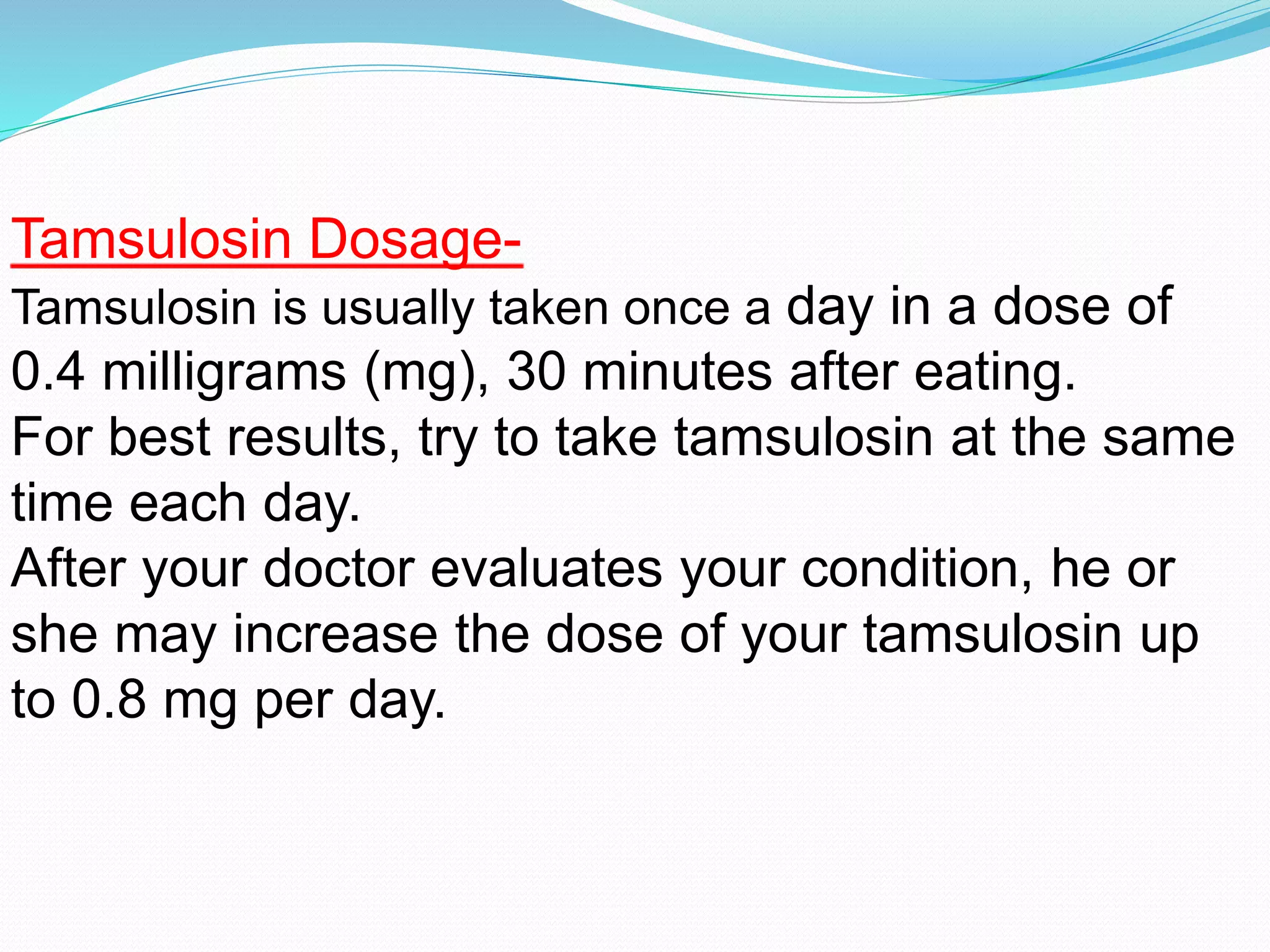
Timing… Does It Even Matter?
So you’ve got your tamsulosin prescription sitting on your kitchen counter, somewhere between your breakfast cereal and your car keys. Every morning, you look at it and think… “Should I take tamsulosin in the morning or at night? Does it actually make a difference, or am I just overthinking this like I do with pretty much everything else these days?”
Don’t worry, you’re not alone in that little ritual. Let’s get into the real talk and cut out the medical speak as much as possible. Short answer? Both options are on the table, but figuring out when works best for you depends a lot more on your body (and your schedule) than on any cast-in-stone rule. Sound good? Keep reading. This is all about making your days (and nights) a little easier to manage.
What Makes Tamsulosin Tick?
Why the Heck Are We Even Asking?
Think about it like this: have you ever noticed how that first cup of coffee hits differently depending on whether you have it at 7 a.m. or at 7 p.m.? Tamsulosin—a muscle relaxer for your nether regions (yes, mainly your prostate and bladder)—kind of has a similar effect regarding its peak time and side effects. The official word from the NHS is that you can take it after breakfast so the medicine hits its peak about six hours later, which aligns with your day when you’re more likely busy and… well, peeing more often.
But then, you look at some online forums—or, okay, you ask your neighbor George—and he’ll swear by his nighttime routine. “No wooziness when I’m upright,” he says, “and I sleep better knowing I’m not about to topple over at the grocery store.”
So… What Does the Research Say?
If you’re here for straight answers (with a sprinkle of storytime), the science is pretty chill: a massive study out of Germany found that there’s basically no difference in the effectiveness or side effects of tamsulosin whether you take it in the morning or evening. Yes, you read that right. The medication does its job, no matter when you take it. There were a few teensy benefits to morning dosing, but nothing life-changing unless you love splitting hairs (research on morning versus evening dosing).
Let’s Pause for a Real-Life Story
My friend Bob (he’s the one who still uses a flip phone, go figure) started taking tamsulosin in the morning with his coffee. He found himself a little lightheaded at first so he switched to dinnertime—problem solved! The point? There’s no gold star for sticking to either sunrise or sunset. Listen to your body, not just the clock.
The Side Effect Shuffle
Worried About Dizziness?
Here’s where things get interesting. Tamsulosin can cause some people to feel dizzy, or even like they might faint—imagine the room spinning during your morning crossword. That’s why some folks (and, interestingly enough, some pharma labels) suggest taking it at night so you can sleep through any “woozy” phase. Safe at home, lying down, no rush-hour pratfalls (why bedtime might work for you).
| When Taken | Perks | Possible Drawbacks |
|---|---|---|
| Morning (after breakfast) | Aligns with daily symptoms, easy to remember | Potential dizziness in the a.m., might disrupt busy mornings |
| Evening (after dinner) | Sleep through side effects, safer if dizziness is your thing | May forget if evenings get hectic, peak effects might miss day symptoms |
Personal Touch
If I had a nickel for every time someone told me, “I forgot to take my dose last night, oops,” I’d probably have enough for a fancy coffee. The trick? Consistency. Whether you attach your nightly pill to brushing your teeth or your morning one to that first toast of bread, make it routine—not an afterthought.
Is It Okay to Switch Times or Switch It Up?
Consistency: Your New Best Friend
This is one of those rare times in life where “boring” absolutely wins. The NHS says, look, just take it at the same time every day. That way, your body knows what’s coming—no surprises, no rollercoaster blood levels (NHS on dosing).
But what if you forget a dose? Skip it—don’t double up to “make up the difference.” This isn’t like sneaking in a double dessert after skipping lunch (we’ve all been there). And if you’re truly curious about Can you take tamsulosin in the morning and at night (maybe you want to split doses for more coverage?), the answer is: don’t do it without chatting with your doctor first. It’s designed to work with one steady daily rhythm, not like a staggered Netflix binge.
What Fits Best with Your Life?
Morning People vs. Night Owls
If you’re the type who loves a morning walk, or maybe your urinary symptoms are most annoying before lunch, the morning’s probably your jam. Toss the pill in right after breakfast, and you align the peak of the med with the hours you need it most. But if you’re prone to feeling a little off-balance? The evening might win—plus, you can sleep off any fuzziness that dares show up.
(Real talk: My neighbor tried mornings, but she felt off while grocery shopping. She switched to after dinner, and—voila!—fewer stumbles, more confidence.)
Let’s Compare
| When | Great For… |
|---|---|
| Morning | People who want daytime symptom control, strong routines, easy remembering |
| Night | Folks sensitive to dizziness, those with hectic mornings, people wanting to “set and forget” overnight |
This is where you get to really own your health decision. Morning or night? It’s all about what fits your schedule, your mood, your “I need to remember this” strategy—maybe even your coffee habits.
Long-Term Use: How Long Should You Stick with Tamsulosin?
So… How Long Is This Going to Be a Thing?
Great question. Once you find your groove with tamsulosin, you may end up being close companions for a while, especially if it genuinely helps with symptoms. The NHS notes that, for BPH, people can stay on it for the long haul if they’re feeling better. Your doc will check in every few months to make sure you still need it—no awkward breakups unless it’s really not working for you or side effects just refuse to chill.
But if you’re still wondering how long should i take tamsulosin?, you’re not alone. For some, it’s ongoing. For others—like if you’re taking it for kidney stones—it might just be until the stones are gone or you swap to another plan. Always, always check in with your doc before stopping or switching meds. That way, you keep those “wait, why am I peeing so much now?” moments at bay.
Real-World Example
My uncle Joe (yep, everyone has one) ended up on tamsulosin for over a year after his doctor noticed he was sleeping better and not bolting out of bed five times a night. The secret, he said? Finding the right timing and sticking with it. If Joe can remember (and he’s a world-class forgetter), so can you.
What About Nocturia—Those Nighttime Bathroom Sprints?
Can Timing Change My Night?
Nocturia is a fancy word for night-time bathroom trips. If you’re waking up constantly, would flipping your dose to nighttime help? Some studies have tried this—yes, dosing in the evening can help some folks sleep longer without that urgent nudge from their bladder (study on night dosing for nocturia). But it’s not universal—some people see no change at all, probably because everyone’s “system” is a special snowflake (just like your grandkid’s kindergarten drawings, but less sticky).
There’s even evidence suggesting morning dosing still helps with night symptoms, thanks to how the medicine is released slowly and works for a long time. So… don’t sweat the clock too much. Focus more on that same-time-every-day routine than on racing the sun or moon.
If you want to get deep in the weeds about mixed-dose schedules or schedules for odd work hours, definitely check in with your healthcare team… and maybe have a peek at the helpful info in Can you take tamsulosin in the morning and at night.
Final Thoughts: Let’s Wrap This Up, Friend!
Alright, here’s where we land: Should I take tamsulosin in the morning or at night? Both are fair game—science really isn’t picky, and neither is your bladder, as long as you’re consistent. Morning after breakfast is genius if you want peak effect during busy hours, but night is classically safer if dizziness strikes when you’re vertical. One big rule is set in stone: Find a routine that you won’t forget, and stick with it. Take it every day, same time, same way. Your body (and maybe your whole household) will thank you.
And if you ever find yourself wondering how long should i take tamsulosin?, know that there’s no one-size-fits-all answer. Talk with your doctor, keep tabs on your symptoms, and don’t be shy about bringing up questions—even the weird, “is this normal?” kind. Your health journey doesn’t have to be serious all the time. We’re all just muddling through, trying to get a good night’s sleep and keep bathroom breaks to a minimum. You’ve got this. Taste test your routine this week—morning or night—and see how it fits. If you’re brave enough, jot down how it feels for you… and maybe tell a friend who’s asking the same question tomorrow.


















Leave a Reply
You must be logged in to post a comment.